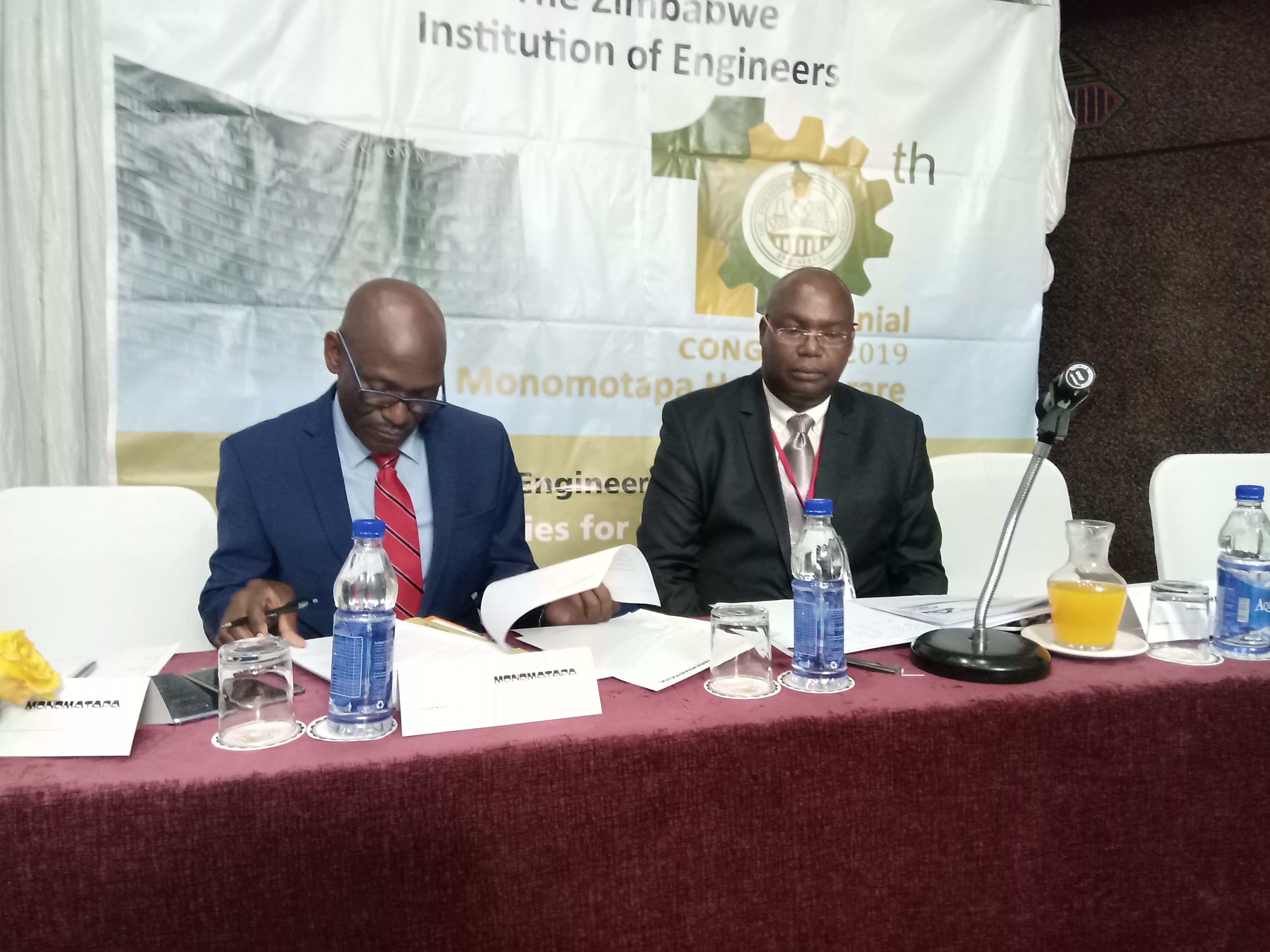As the Zimbabwe Institution of Engineers (ZIE) 10th Biennial Conference kicked off in Harare today, there has been a call for Engineers in Zimbabwe and beyond to come up with a solution to Harare’s water crisis.
The theme for the conference is “The Role of Engineering Professionals – Fundamental Duties for National Development” and alludes to the importance of the engineering profession in solving problems bedevilling Zimbabwe.
In his welcome remarks at the conference, Engineer Hosiah Chisango, the Town Clerk for the City of Harare said Zimbabwe is facing a myriad of challenges in the water and and waste water sector, the energy sector, roads and the general decay of infrastructure because there has not been any meaningful investment for the past 30 years.
“Society expects the engineers to solve these problems. I am from the local government sector, the third tier of government which is closest to the people and the major question that is raised by many is: where are the engineers when Harare is affected by medieval diseases such as cholera and typhoid?, where are the engineers when roads are potholed? These issues need engineers to fix them,” Engineer Chisango said.
Engineer Jacob Mutisi weighed in and said that engineers and technologies are defined as problem solvers and should take the leading role in solving the world’s and our nation Zimbabwe’s economic and infrastructure problems.
“As Engineers, we need to be the foundation of all decision making all economic and infrastructure challenges. As the ZIE 10th Biennial conference commences there has been a call for Engineers in Zimbabwe and beyond to come up with a Solution to Harare’s water crisis. Please note a water treatment system is a basic water distribution system whose infrastructure consist of the pipes, pumps, valves, storage tanks, reservoirs, meters, fittings, and other hydraulic appurtenances that connect treatment plants or well supplies to consumers’ taps.
“Modern water treatment system also consist of Information and Communication Technology and the main control systems. What I don’t understand is how on earth can our country and capital city struggle building a treatment system yet is something that every engineer come across during their training. I am calling on our Zimbabwean engineers, local and worldwide to come to the nation’s rescue NOW,” Engineer Mutisi said.
Dr. Eng. Ben Rafemoyo, the Chief Executive Officer of the Engineering Council of Zimbabwe said he was pleased by the fact that the theme aptly focuses on the implementation of the UN Sustainable Development Goals, which is also the key objective of the global, continental and regional engineering bodies.
He cited Education, SDG Goal Number 4, Gender Equality, Goal number 5, Innovation that is Goal Number 9, the Sustainable Infrastructure on Goal number 11 and the Climate Change Goal on Number 13. Engineer Rafemoyo highlighted that all goals are essential for the sustainable economic development in Zimbabwe and Africa at large.
Engineer Godknows Mhonde, the President of the Zimbabwe Institution of Engineers said empirical evidence points to the fact that millions of people have limited or no access to basic infrastructure, particularly in underdeveloped economies such as Zimbabwe.
“This in spite of the unprecedented technological advancement being experienced in say Organisation for Economic Co-operation and Developed member countries and some pacesetters in the region such as Rwanda and South Africa. As a State, we need to find more suitable options for sustainable engineering solutions and investments in infrastructure. Critical decisions being made on infrastructure or major national developments require sustainable professional advice. It would be folly to embark on any engineering project whilst keeping engineering advice peripheral. In our circumstances, there is greater expectation to do more with less, to be more creative and innovative, to maximise the solutions available, and to offer SMART infrastructure that is more responsive to the needs of the society,” Engineer Mhonde said.
This year’s speakers will focus on Infrastructure Clusters: Energy, Water, Roads Transport, Environment and Industry, with ICT running through all the clusters.
“The resource persons have been uniquely and deliberately placed to talk about current themes and perspectives in expert areas and proffer tentative engineering solutions. Gone are the days where such fora are used as mere talk shows that institute blueprints which never see the day. I implore delegates to deliberate on all proceedings with the zeal and pomp they deserve and recommend feasible strategies for implementation, with specific timelines. Where concerns raised appear hazy, there is need for continual engagement now and post-congress so as to realise the requisite buy-in,” Engineer Mhonde added.
